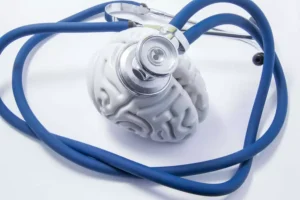
By understanding these dynamics, we can gain insights into how to effectively stay motivated when faced with the difficulties that may arise throughout the recovery process. When it comes to recovery, motivation can be seen as determination. It’s the drive to bring about positive transformations in one’s life, especially when dealing with issues like substance abuse or addiction. It involves the wish to break free from patterns, develop new routines, and strive toward a fulfilling life without substance dependency. However, holding onto this motivation is easier said than done as individuals encounter obstacles that can impede their progress.
- It strengthens one’s own commitment to recovery, and helps reduce stigma and promote understanding in society.
- Discover how motivation contributes to long-term sobriety, explore personalized resources and treatment options, and find the resolve to keep going, even when the path gets tough.
- To overcome addiction, you need to decide it internally, casting aside your previous denials and excuses and abandoning your old patterns of thinking and ways of life.
- As time goes by, you’ll likely find that motivation goes up and down.
- Stand firm against peer pressure or other external factors that might tempt you to stray from your recovery path.
- It powers an individual’s commitment to recovery and assists them to beat obstacles.
Building Good Habits

Share progress with trusted loved ones or support groups for recognition and encouragement. Express gratitude for progress and positive =https://ecosoberhouse.com/ changes during the recovery process to maintain purpose and appreciation. Setting clear goals related to the purpose of recovery provides a roadmap for progress.
- All thoughts and feelings have utility and are necessary to remind us of what’s important to us.
- That can mean short-term support in the form of ongoing treatment after you leave rehab.
- Additional goals, while still important, may need to be worked on a little later after the primary goals are being managed well.
- Finally, MET is flexible and adaptable to different stages of readiness for change.
- When individuals are intrinsically motivated, they are more likely to feel a deeper commitment to their recovery.
Focus on the Benefits of Recovery Motivation

Recovery is a journey, and that means there will be bumps along the way. Everyone struggles during their journey, and being honest about our struggles allows us to reach out to those who are supportive and willing to help. The people you reach out to might be able to help re-spark your motivation, but they’ll never be able to help if you don’t speak up when you’re in need. By having a structured schedule of healthy and positive activities from day to day, you can create a sense of order in your life. This is also a great way to improve your goal-setting and goal-reaching work.
- Replace self-defeating beliefs with empowering ones, like understanding that recovery is a lifelong process with highs and lows.
- Intrinsic motivation, which stems from personal desires and a desire for positive change, is crucial in addiction recovery.
Establish your process.

In many cases of substance use disorders, the abuse prolongs because of an inability to see a recovery motivation problem and to accept responsibility for any bad actions that come from this disorder. Having made that stride, the next step is finding the internal motivation to not quit and to keep fighting everyday for a better life. The cons of recovery may seem like a lot at first but with every con, there is a pro and in harder times it is important to remember why you are choosing to make this change for yourself. Some of these pros could include an increased awareness of life, a healthier body, greater ambition, and a new social circle full of loving individuals who accept who you are.
Substance Abuse Treatment
Motivation is more than a passing emotion; it is a commitment to embracing transformation and aiming for a brighter future. It gives individuals the courage to navigate through challenging times. Before committing to a life free of drugs and alcohol, people should understand why it is important to achieve sobriety. They need to learn that addiction Substance abuse is a disease that can hurt their loved ones as much as it hurts them.

Importance of motivation in addiction recovery
You’ll spend less energy staying in recovery – but you’ll still need the habits, motivation, and structure you built to resist cravings some of the time. The final step in 12-step programs like Alcoholics Anonymous (AA) and Narcotics Anonymous (NA) is to spread the message to other people living with addiction. By helping others into recovery, you’re reminded of your own progress, shake off any complacency in your sobriety, stay accountable, and find happiness and fulfillment. Moreover, motivation is vital for getting through problems while in recovery.
- Everyone struggles during their journey, and being honest about our struggles allows us to reach out to those who are supportive and willing to help.
- This driving factor pushes individuals ahead in the face of challenges and hurdles.
- Building a recovery success story begins with your own recovery motivation.
